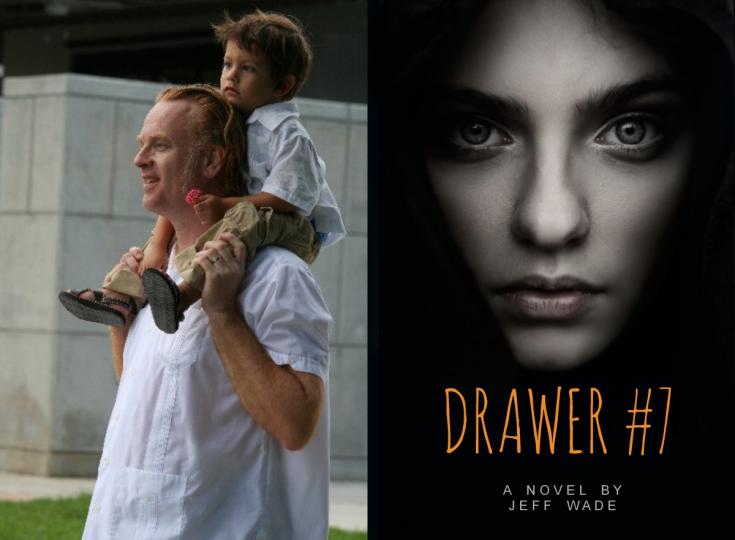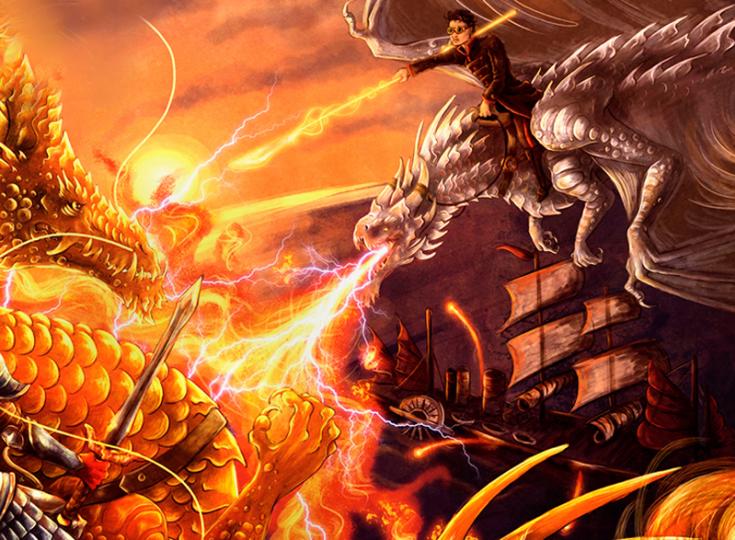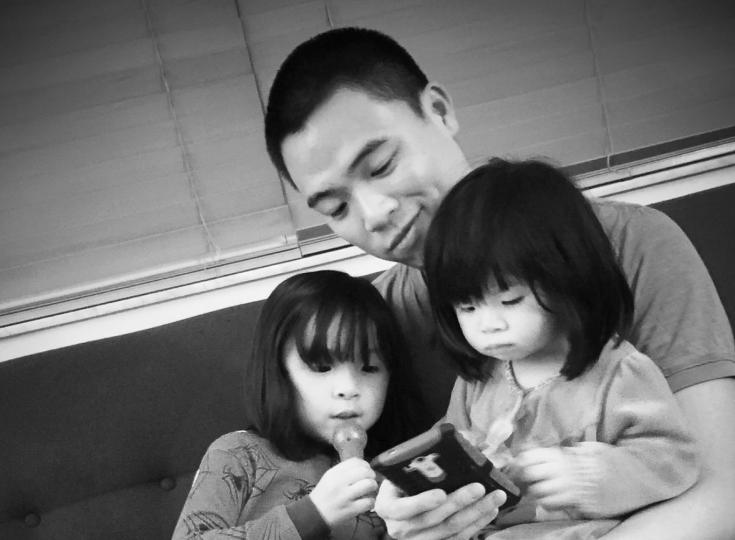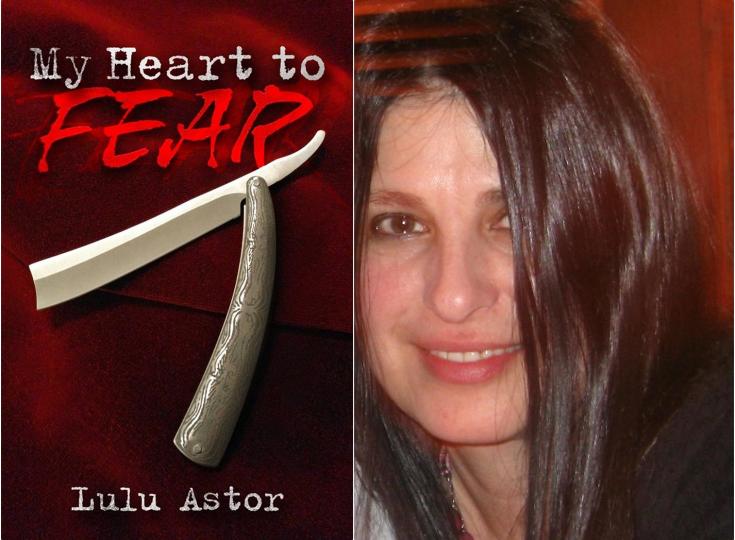Jeff Wade - Taking Readers on a fun and Psychologically Stimulating Journey

Jeff Wade began his career not with writing but with story telling. Though a jovial character in person, his stories tend toward the dark side, although always edged with a glimmer of hope. He teaches Aikido and Taekwondo at his dojo, South Miami Martial Arts. He is also a gunsmith. His stories well reflect his experience in guns and hand-to-hand combat. As our Author of the Day, Wade tells us all about his latest novel Drawer #7, a suspenseful psychological thriller with a touch of sci fi to it.
Please give us a short introduction to what Drawer #7 is about.
The idea for the story came from a disturbing experience. I turned to a mirror—and there was someone else’s face staring back at me. As it turned out, it was my brother Chuck. The mirror was in fact an interior wall window, there as a result of an incomplete patio enclosure project. But it really disturbed me there for a moment!
So the story opens with this woman “coming to life” in a place she’d never go: a strip club. The stage of a strip club. Aghast, confounded, she turns to run—but comes face to face with the floor-to-ceiling mirrors, from which a stranger is staring back at her.
She connects with Freddie “The Fixer” Schaeffer, a kind-hearted handyman with shadows in his past. He’s intrigued with her condition—and with her. She discovers she has amazing martial arts skills, and is adept with firearms. Things get complicated when a hitman from a corrupt government agency comes to call. Why the amnesia? Who, exactly, is she? That’s the puzzle they struggle to solve throughout the entire story. I can say with confidence that the solution is something you would never guess. Not in a million years.
Tell us more about Freddie. What makes him tick?
Freddie is a simple man, no genius but smarter than most. He has a long list of satisfied handyman clients, none of which he can call friends without fidgeting a little. He is content with his loneliness, or pretends to be. There is a tragedy in his past that terrifies him. He shrinks from it. Hides from it. More so than he realizes, as it turns out. In Zoe, the enigmatic co-protagonist, he sees hope for a new life. He longs to help her uncover her past, figure out who she really is. With enemies from her veiled past popping up everywhere, this proves much more daunting than he’d expected. How far is he willing to go for love? Will he die for it? Will he kill?
What inspired you to write about an amnesiac who says vexing things in her sleep?
I am fascinated with human psychology. Dreams, subconscious behavior, obsessions, compulsions . . . you name it. My wife was a psychology major, and I accompanied her through the entire degree, lapping up every story of the strange things people did in the cases she studied.
And I love people. I long to help them learn who they are inside, to better understand themselves and human nature. I suppose this is why I ended up a martial arts instructor. Martial arts, at least the way I approach it, is more about the mind and spirit. The techniques are just a catalyst.
Through exciting fiction, I hope to take people on a fun and psychologically stimulating journey. Get them thinking. Raise tough questions. What more intriguing psychological subjects are there than amnesia and strange dreams? Well. There is one—but revealing it would be a spoiler.
You throw your readers right into the plot, without any introduction. Why did you take this approach?
When I read, I’ve come to accept that most times it’s necessary to invest a little “bored time” before the story really grabs me. That’s cool; in most cases it’s well worth it. But I thought, why not drop people right into the action, get them on the edge of their seats from the get-go? No prep, no warm-up. Just boom! Go! My logic was that perhaps the investment they’d inevitably need to make in character development and back-story would be more palatable if they had a little adrenaline pumping in their veins.
Drawer #7 is hard to categorise in one specific genre. Why did you decide to mix things up a bit?
Mixed-genre is a no-no in writing, or at least in publishing. I accept that. Why did I do it?
Well, there’s a joke this Russian friend told me—if you’ll pardon the nationalist stereotypes: How do you get an American to jump off a bridge? Tell him all his riches are gone. How to you get a Frenchman to jump off a bridge? Tell him his lover has left him for another. How do you get a Russian to jump off a bridge? You tell him, “Hey. You’re not allowed to jump off this bridge.” I’m a Russian. Figuratively speaking.
Readers say the book is a real page-turner and had them up reading till the late hours of the night. How did you pull this off?
I think—I hope—that it’s due to the risks I took: Tossing them right into extreme action, right on the first page, gets them hooked right away. At least that’s the idea. And, for people willing to consider it, I think the mixed-genre ends up being a real plus. You come to care about the characters because I put you inside their lives, their heads. They’re made real because they’re dealing with authentic life issues: Love. Loss. Anger. Pride. So when a character wins—or loses or gets injured or dies—it moves you. Because you care. If all they did was shoot and have sex and drive fast cars, then what they’re going through would not seem so important. But when you care, you want to know what’s happening to them, and how—or whether—they make it. And to know that, you have to finish the book—even if that means missing a night’s sleep.
Besides writing, what other secret skills do you have?
I see life as a kind of carnival. There are so many rides; it’s impossible to enjoy even a fraction of them with the limited time we’re given. There’s the Raising Kids ride. The Learn to Ride a Motorcycle ride. There’s Build a Treehouse. Tour as a Drummer in a Heavy Metal Band. Play Drums in a Jazz Trio. Music Theory Professor. Refurbish a House. Build Websites. Program Databases. Become a Martial Arts Master. Learn to Gunsmith. Become a Marksman. Own a Dojo. And of course, Write Fiction. There is no damn way on earth I’m going to fiddle-fart around standing on the midway. I have enjoyed all the rides I mentioned, and probably forgotten a few. When I turn my body and mind in at the end of this carnival of life, I want God to say, “Good Lord, dude. You got good use out these, didn’t you?” You bet your Celestial Butt I did!
The book contains quite a bit of slang, but also contains words that will make readers reach for the dictionary. Why did you write it this way?
The slang was tough. At first, especially with Julie and the bouncers, I badly overdid it. While more authentic, it was less believable. That’s because reading a complicated line of mispronunciation spellings forces the reader out of fantasy land and into analysis mode. It comes off sounding exaggerated, even though it’s technically more correct. People are smart. If you give them a little hint at how a character sounds, they’ll do a much better job of filling in the blanks themselves than any writer ever could on the page.
What was your greatest challenge while writing Drawer #7?
Dropping clues without giving away the shocker ending! I needed the reader to receive a slow-drip of what was happening behind the scenes. That’s why I created Bruce. But it was so easy to drop clues that, when coupled with others, would reveal what was happening. With this story, it’s crucial to keep that a secret until the very end. The deleted scenes for Drawer #7 are as long as the book itself!
What do you hope readers will take away from this book?
As with martial arts, I do this to stimulate people’s minds, to offer them an opportunity to learn, to grow. I hope they will see an illustration of indomitable spirit, and perhaps foster that in themselves. I hope they come to consider the vulnerability of love—and that though it can hurt, it’s well worth it. I hope it reinforces the treachery of pride. The gift of giving. The cost of freedom. And, of course, I hope they have fun!
Do you have any interesting writing habits? What does an average writing day look like for you?
I have four kids. Writing while they’re awake is impossible. “Dad look at my Barbie doll.” “Dad can we go fishing.” “Dad do you want to play Transformers?” “Dad I colored you a picture.” How could I say no to any of it?
So I rise every morning at 4 a.m. I love that time of day! The sidewalks are rolled up; the air is clean and quiet. I’m friends with the possum who steals our dog food by moonlight, the cat who rummages in the dumpster at the dojo. The dojo is where I head on weekdays. If necessary, my writing can overlap with dojo business. At 4 pm, my teaching day starts.
On weekends, I write out in my workshop. That buys me an extra few minutes when the kids begin to stir. But eventually, they wander out there for some Dad time. That’s okay; that’s why I set up at home. I start nothing I’ll be unable to stop on weekends, because when it’s Dad time, it’s DAD TIME!
Have you always known you wanted to be a writer? What inspired your debut?
As I said, I’ve been and done lots of things. Too many, probably. Writing was always there, but I’d never published a book until 2016. My Taekwondo instructor, Grandmaster Katherine Wieczerza, required that I do a “monumental project” for my 7th degree test. That’s grandmaster, so it had to be something significant. I had an incomplete thriller novella in which martial arts and martial arts philosophy played a huge role. When I mentioned it, she said, “Okay, that’s your project. Finish the book.” It was bliss, it was hell. It was everything I never knew I wanted in life. By the way, that’s Finding Nowhere, originally entitled Survivors. After that, I dove into Drawer #7, and breathed life into a few other stories I had sitting in my “To Finish Before I Grow Up” stack.
What are you working on right now?
One of two stories; I haven’t decided which just yet. One is a psychological thriller in which all the animals on earth start going berserk and attacking humans. They slowly mutate, become increasingly dangerous by the day. Think about it . . . a squirrel doesn’t seem dangerous—until you’re hunting them and pick up one you thought was dead but isn’t. They have a nasty bite. What if every squirrel in the park suddenly attacked, with no regard for their own lives or safety? What about cats? Dogs? Heck, livestock! Anyway, this dysfunctional family is stuck in a house, along with the buff twenty-something lawn boy—who has the hots for the teenage daughter. Awkward. Uncomfortable. Terrifying. Fun!
The other project is a prequel to Drawer #7. I want to dive into Julie’s past in Arkansas, Zoe’s past as a . . . well, I can’t say what. . . and especially into Big Man. And into the source of the amber, which I also can’t talk about without revealing spoilers to DN7.
Where can readers discover more of your work or interact with you?
Like at the dojo, I’m very hands-on. I welcome emails, even phone calls. My website is JeffWade.com, on which there is a contact form—and where I offer Finding Nowhere free of charge! If you sign up for my New Release mailing list, my phone number is on every email. Please note that I hate SPAM. I only send notices about new releases and discounts. I occasionally send out deleted chapters, free short stories, articles and other goodies. That’s it. NO SPAM!








